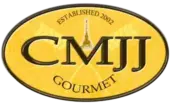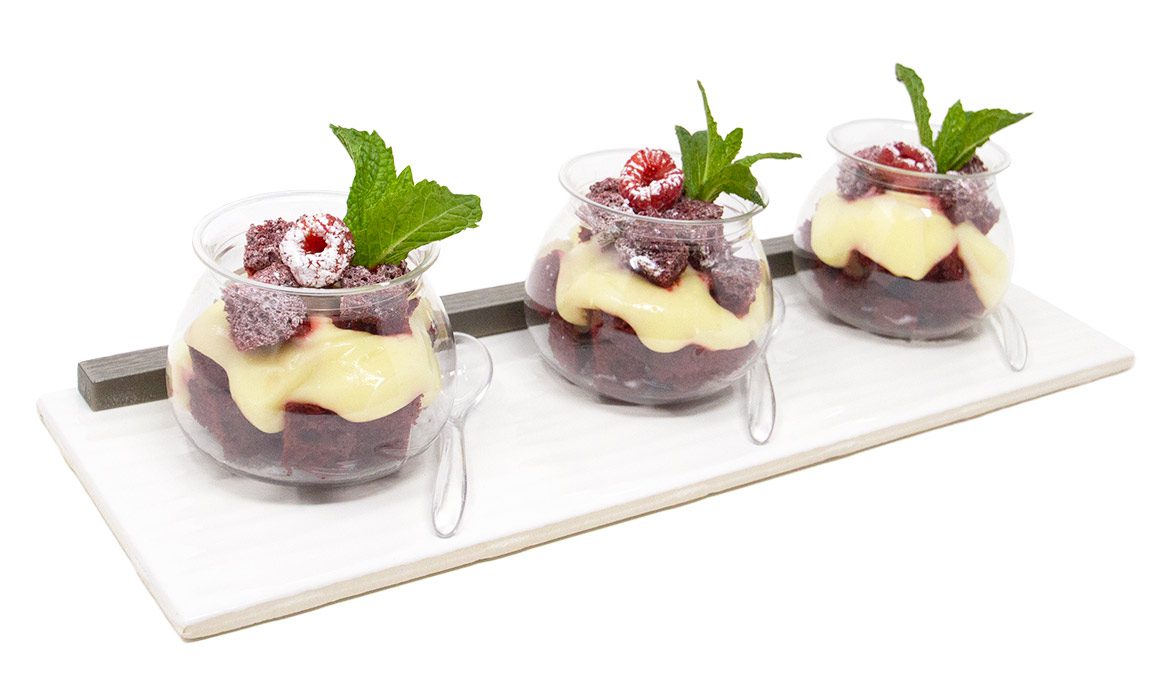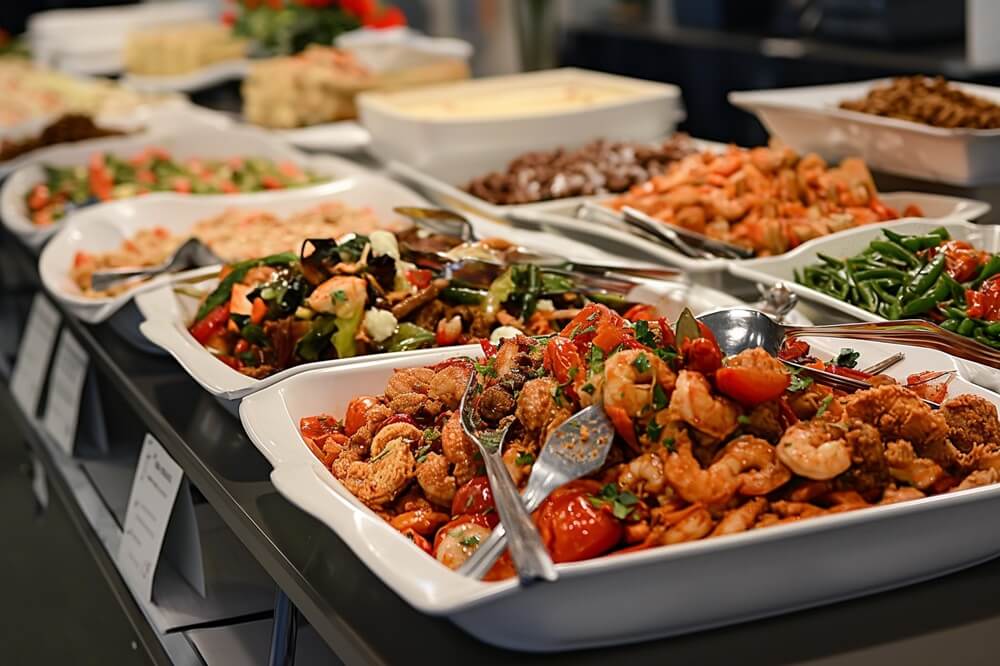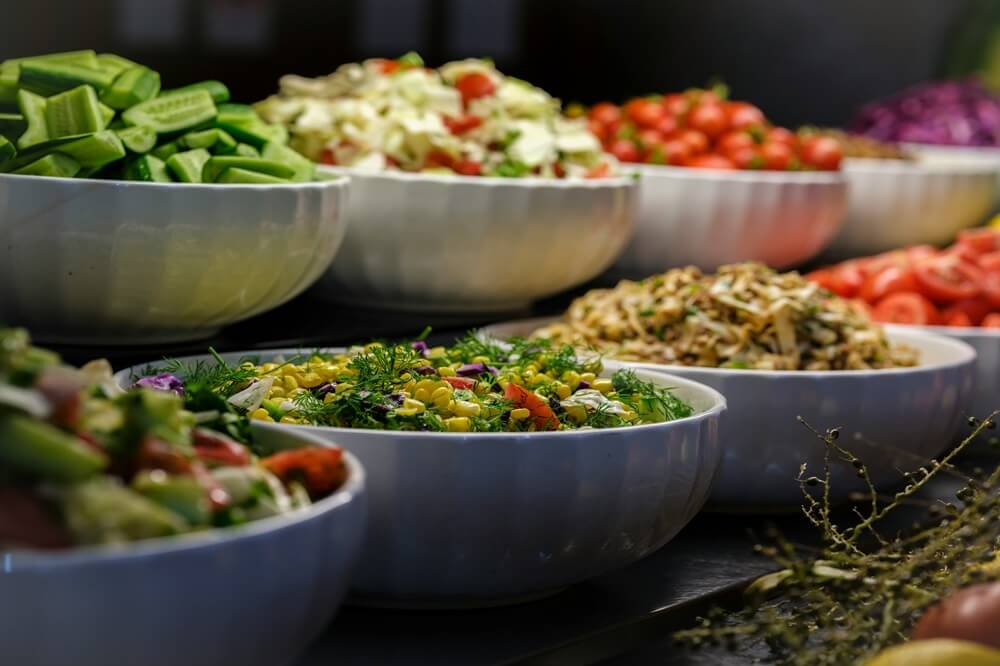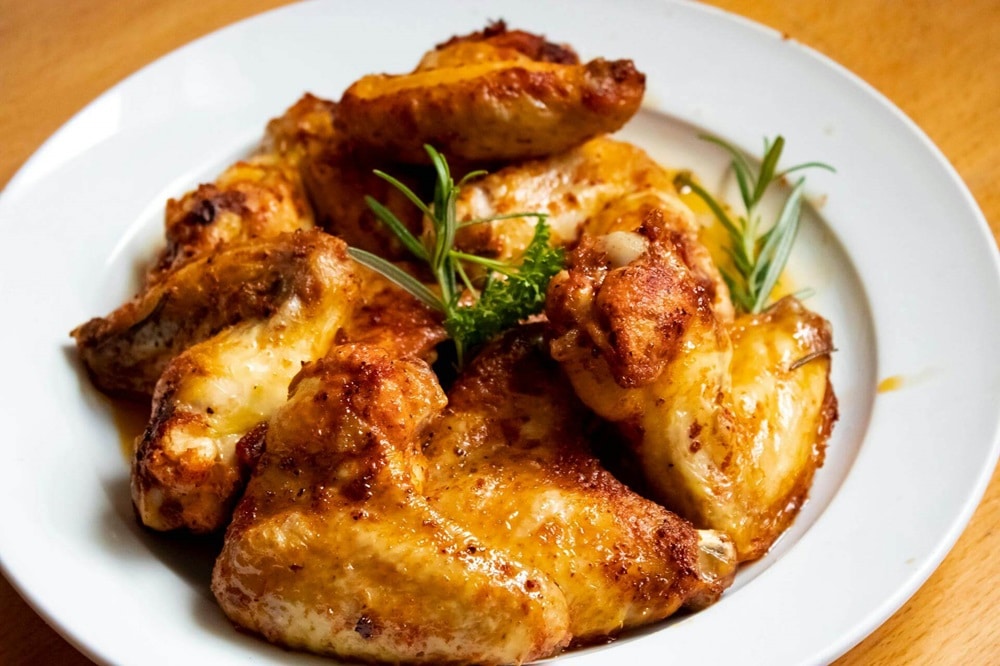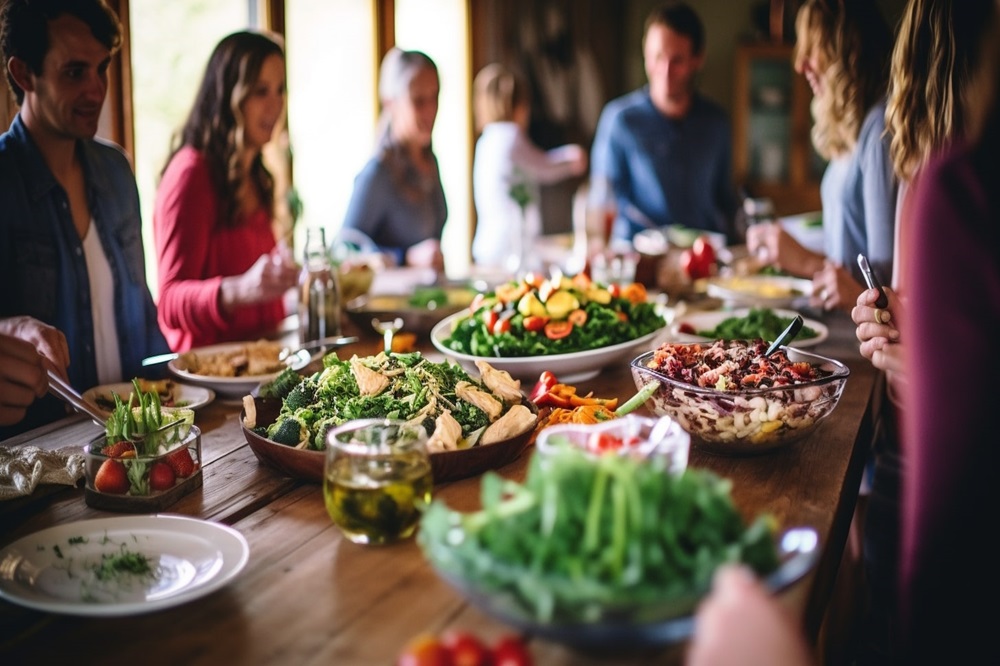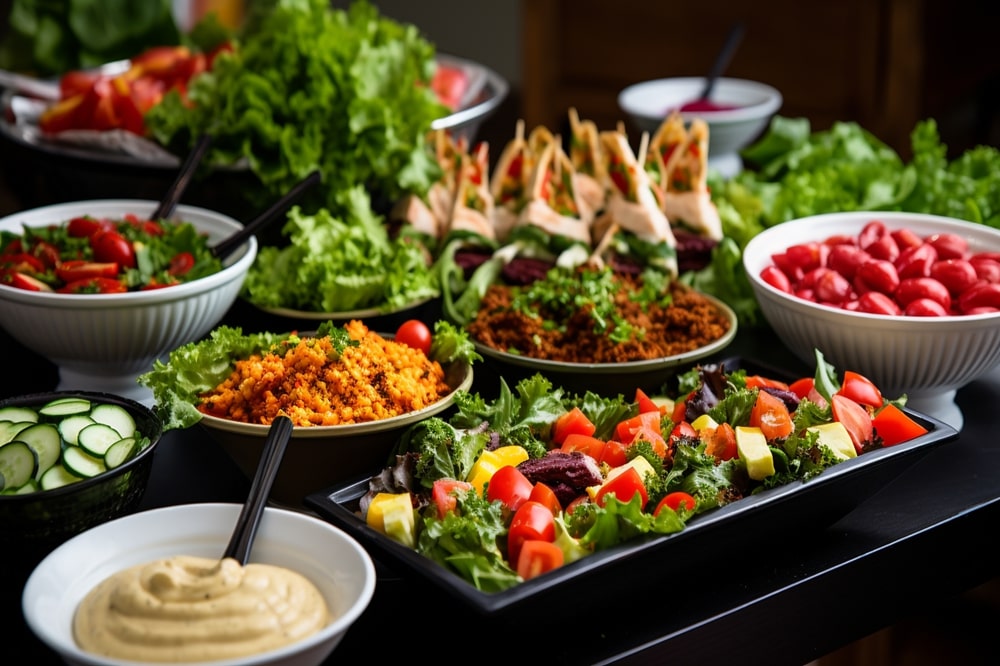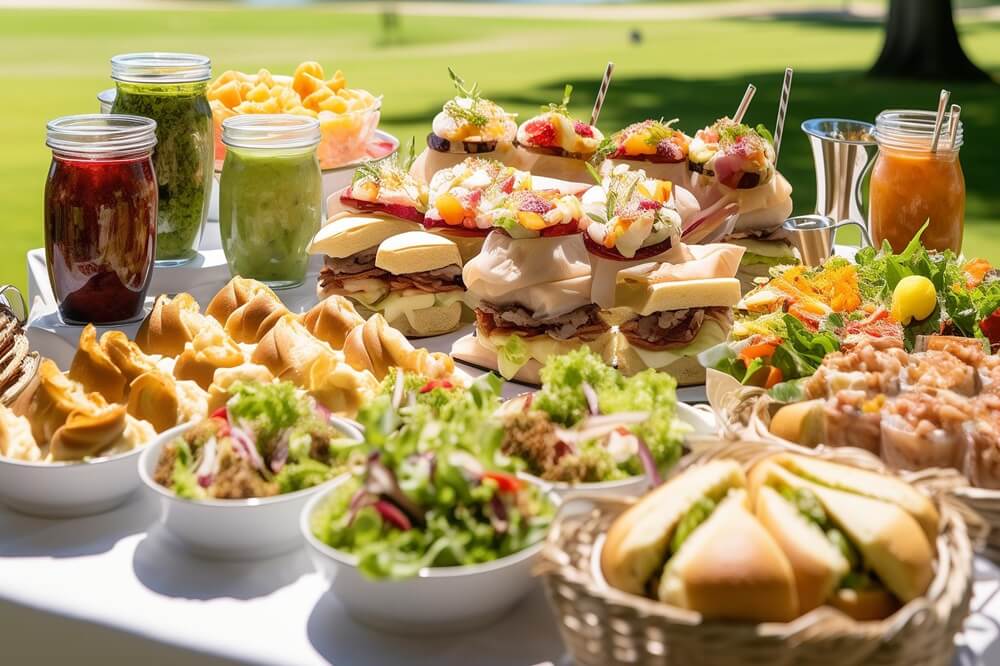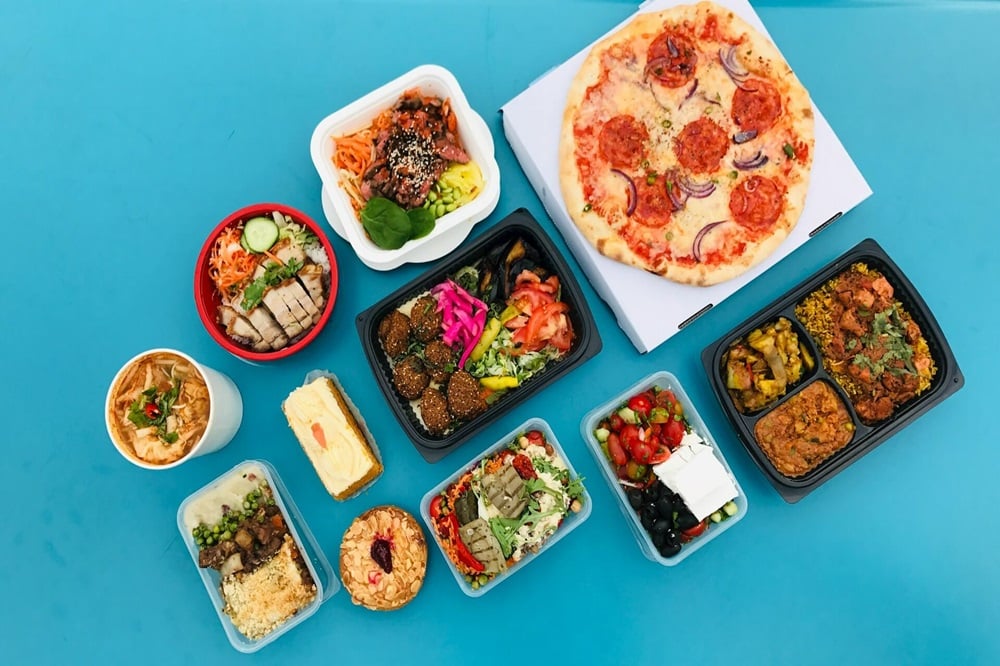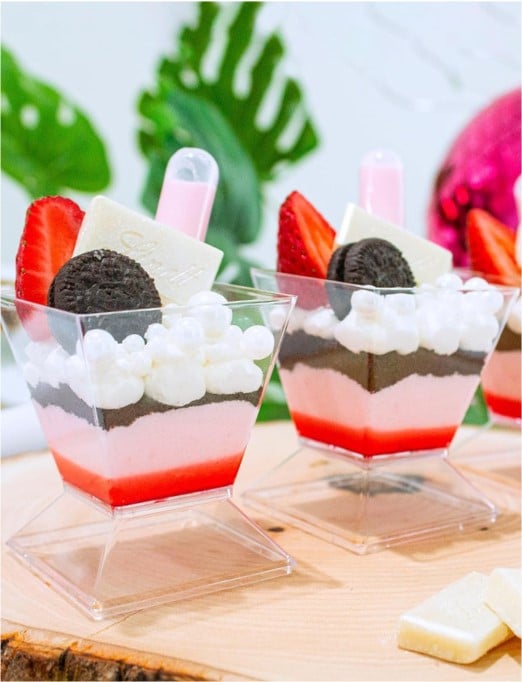Over 100 foods can cause allergic reactions. The most common are eggs, milk, peanuts, tree nuts, fish, shellfish, soy, and wheat. There are several key things caterers need to know about food allergies.
Table of Contents
Food Allergies Are Life Threatening
Food allergies are life threatening conditions. Exposure to even miniscule amounts of a triggering allergen results in an overwhelming immune reaction: the body mistakes substances in the food for harmful attackers, and releases antibodies and chemicals into the bloodstream to defend itself against the perceived threat. Severe allergic reactions like anaphylaxis can cause difficulty breathing, shock from a sudden drop in blood pressure, and even coma or death.
Insist That Guests Self-Identify
Accommodating allergies begins with knowing they exist. The most important of the key things caterers need to know about food allergies is that guests must identify themselves as allergic, and specify the foods they can’t consume. Hosts should require this as part of the RSVP for the event.
Avoid Cross-Contamination and Label Everything
Caterers must prevent cross-contamination. Prepare separate, allergen-free dishes in a separate kitchen that is completely free of the presence of the identified allergens. Designate a separate set of all equipment, from utensils to cutting boards, pots, pans, and storage, for exclusive use preparing allergen-free foods. Clean and sanitize everything after each use. Use color-coding or other labeling systems to ensure separate use.
Avoiding cross-contamination extends transporting, packaging, and presenting food. Use separate, dedicated serving dishes, platters, and plates for dishes intended for those with food allergies. When delivering foods to event venues, use clearly labeled disposable bulk plastic serving trays that are covered, and kept separate from other foods. Group allergy-friendly dishes together, away from foods that contain allergens.
If serving buffet style, label everything, e.g., whether it is vegan or gluten free, and especially if it contains allergens or was prepared in the same kitchen as foods containing common allergens.
Train Staff
Prep staff, cooks, and servers all must receive training in allergy-safe practices. They must understand that touching foods that contain allergens, and then touching foods that are supposed to be allergen free, creates cross contamination. This is true even when wearing gloves because the gloves can carry the allergens from one food item to another.
Cooks must know that they can’t substitute ingredients. Staff must understand that simply rinsing spoons, picking nuts off desserts, heating foods, and using other improvised methods don’t remove allergens.
Know How To Respond
Discuss emergency response with the host and the venue. Guests with severe allergies should be able to enjoy the event without worrying about exposure to life-threatening foods. But if exposure occurs, what then? What if the guest doesn’t have an EpiPen with them? What should servers do if they notice a guest is in distress? Having a plan going in should be part of preparation for catered events.
Food allergies are growing more common, and in order to thrive, food service businesses must be prepared to accommodate patrons and guests with allergies.
Other Articles
Dessert Menu for Wedding
Key Takeaways Dessert is a memorable highlight of weddings, offering a chance…
Catered Lunch Ideas
Key Takeaways Offering a range of customizable meal options caters to different…
Healthy Catering Options
In a world where convenience often trumps nutrition, finding healthy food catering…
Appetizer Catering for Weddings
A wedding celebration is a symphony of love, and every note must…
Chicken Dishes for Catering
Chicken is always a great choice for catering events and parties. It’s…
Family Reunion Food Ideas
It’s hard to imagine a family reunion without lots of delicious food,…
Cold Buffet Ideas
Hot foods are great for parties, but they have one significant disadvantage…
Catering for Picnics: Ideas, Hints and Tips
Picnics blend the simple joy of outdoor dining with the delight of…
How To Tell if a Container Is Microwave Safe
An important question, indeed. Not every container we buy, receive, or use…
